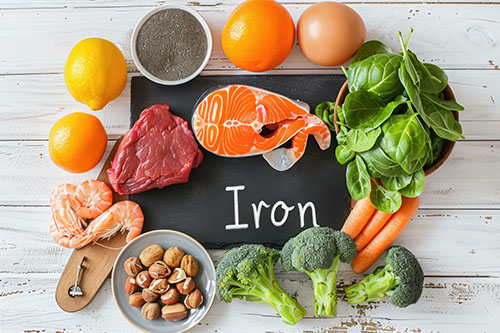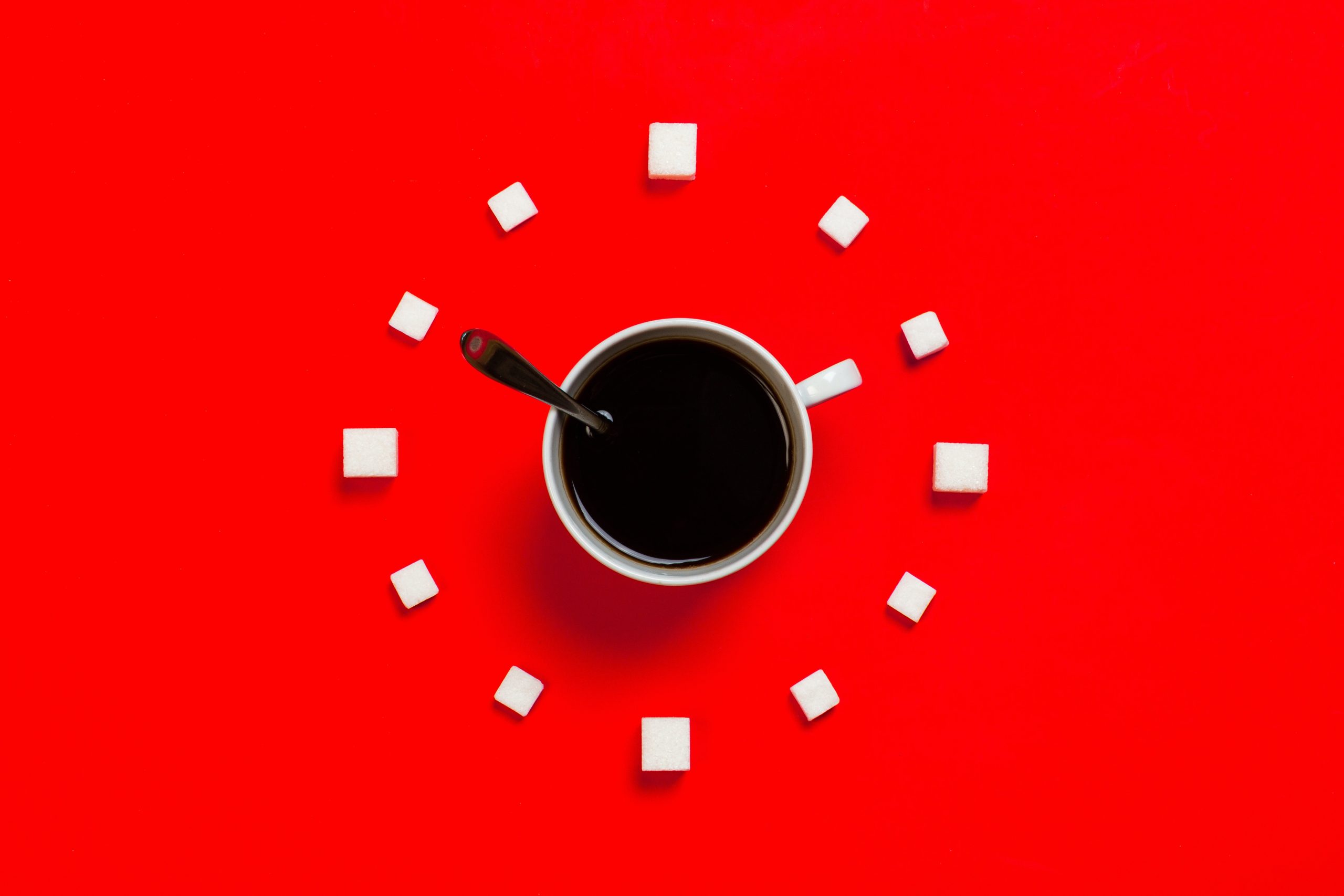Iron Deficiency Anemia: My Experience

I’ve had iron deficiency anemia more than once in my life, but nothing quite as severe as what I experienced late last year. It hit me like a freight train, and I was completely caught off guard. I thought I was just tired, run down from life and work, but as the days went by, things only got worse. I began to feel dizzy to the point that I’d need to recalibrate every time I stood up or sat down. I was pale, exhausted, and couldn’t seem to shake a dark cloud of depression that felt like it had come out of nowhere. It was unsettling, and I had no idea what was happening to me.
After pushing through for a while, I finally made an appointment with my doctor. Sure enough, after some blood work, I found out that my iron levels were dangerously low—level one iron deficiency. How did I miss it? The truth is, it had been years since I last dealt with low iron, and this time, it was much more severe than I realized. I remember feeling a bit ashamed and frustrated, wondering why I hadn’t noticed the warning signs sooner.
I wouldn’t wish that feeling of complete unwellness on anyone. It wasn’t just the dizzy spells or the fatigue; it was everything. My body felt like it wasn’t my own anymore, and I couldn’t seem to pull myself out of the haze. As if that wasn’t enough, another frustrating symptom I dealt with was my inability to lose weight. Despite eating very little (which, I know now, was probably not the best approach), I couldn’t seem to drop a pound. Even my daily shot of Lemon, Ginger, and Turmeric wasn’t making me feel strong. My workouts were weak, and I just didn’t have the energy to put in the effort I once could.
Common Severe Anemia Symptoms of Iron Deficiency Anemia
As I began to research and understand more about iron deficiency anemia, I realized that what I was experiencing wasn’t just typical fatigue—it was a series of more severe symptoms that many people with iron deficiency face. These include:
- Dizziness or Lightheadedness: This was probably the worst symptom for me. The dizziness was so intense that I had to recalibrate every time I stood up or sat down. I often felt like the world was spinning, and it made simple tasks feel overwhelming.
- Fatigue and Weakness: Extreme tiredness that wasn’t relieved by sleep. It felt like my body was constantly running on empty, and even the smallest tasks felt like monumental efforts.
- Pale or Yellowish Skin: My skin became noticeably pale, and I could even see a yellowish tint that I hadn’t noticed before. This was a clear sign that my body wasn’t getting the oxygen it needed.
- Shortness of Breath: Even simple activities, like walking upstairs or doing household chores, left me breathless. It felt like I couldn’t get enough air.
- Cold Hands and Feet: My extremities were always cold, even in warmer temperatures, which was a sign that my circulation was struggling.
- Headaches: Constant, dull headaches were a regular occurrence. It felt like pressure was building up in my head, and no amount of sleep or hydration seemed to help.
- Restless Legs Syndrome: I would feel a constant, uncomfortable need to move my legs, particularly when I was trying to sleep. This symptom can be linked to iron deficiency and makes it harder to get the restful sleep your body needs.
- Brittle Nails and Hair Loss: My nails became brittle and would chip or break easily, and I noticed increased hair shedding, which is common when iron levels drop.
- Heart Palpitations: When iron is low, your heart has to work harder to pump oxygen throughout your body, which can lead to an irregular heartbeat or palpitations.
These symptoms were all signs of severe anemia, and they weren’t just inconveniences—they were seriously affecting my quality of life. If left untreated, iron deficiency anemia can lead to even more serious health issues, which is why addressing it quickly was so important for me.
Risks if Iron Deficiency Is Left Unaddressed
If you don’t treat iron deficiency anemia, the consequences can be significant. While many of the symptoms I mentioned earlier are uncomfortable, chronic low iron can lead to more serious health risks, including:
- Heart Problems: Severe anemia can cause your heart to pump harder to make up for the lack of oxygen in your blood. Over time, this can lead to heart failure or an enlarged heart. People with iron deficiency anemia are also at higher risk for arrhythmias (irregular heartbeats).
- Compromised Immune Function: Iron plays a critical role in the function of your immune system. Without enough iron, your body may struggle to fight off infections, leaving you more susceptible to illnesses.
- Complications During Pregnancy: Iron deficiency during pregnancy can increase the risk of preterm birth, low birth weight, and postpartum depression. It’s especially important for women who are pregnant or planning to become pregnant to maintain healthy iron levels.
- Cognitive Issues: Low iron levels can affect your ability to concentrate and remember things. It’s especially concerning in children and the elderly, where untreated anemia can lead to developmental delays or a decline in cognitive function.
- Exacerbation of Existing Health Conditions: If you already have certain conditions like chronic fatigue syndrome, fibromyalgia, or heart disease, iron deficiency can worsen these symptoms, making it harder to manage them effectively.
The Diagnosis and Realization
I can’t describe the feeling of relief when I finally had a diagnosis, but it came with a lot of frustration. I couldn’t believe how far I had fallen without realizing it. Iron deficiency anemia is sneaky—it doesn’t always show up in obvious ways. Symptoms like dizziness, fatigue, and pallor crept in slowly, and I thought it was just stress or overwork. But I was wrong.
The doctor suggested an iron infusion, which sounded like a potential solution, but there was a long waitlist, and honestly, I wasn’t keen on the idea of something so invasive. So, I took matters into my own hands. I started looking for alternative ways to boost my iron levels and take back control of my health.
The Solution: Iron-Rich Smoothies & OptiFer Supplements
I made a decision to add more iron-rich foods to my diet in the form of smoothies. Every day, I blended up spinach, kale, chia seeds, pumpkin seeds, and a variety of fruits to get as much iron in my body as I could. It became a daily ritual, and although I wasn’t feeling much better right away, I was hopeful that I was giving my body what it needed.
In addition to the smoothies, I started taking OptiFer Alpha—a non-heme iron supplement that became my game-changer. Unlike traditional iron supplements, which often have to be taken on an empty stomach and can cause discomfort, non-heme iron like OptiFer worked so much better for me. It was gentle on my stomach and didn’t have the same unpleasant side effects I’d experienced in the past. Sure, it was a bit more expensive than typical heme iron supplements, but in my opinion, it was so worth it. I honestly believe that this supplement made all the difference. It felt like my body was finally absorbing the iron it desperately needed.
The Long Road to Recovery
It took a couple of months, but within about two months of taking the supplements and drinking my iron-packed smoothies, I was starting to feel like myself again. The dizzy spells gradually faded, my energy returned, and the pallor in my skin started to lift. It wasn’t an instant fix, though—it was a long road full of moments where I felt confused, unwell, and discouraged. Iron deficiency can really mess with your sense of self, and the symptoms are sneaky enough that you don’t always realize what’s going on until it’s pretty bad.
But looking back, I’m so grateful for the steps I took. The smoothies and the OptiFer supplement helped my iron levels recover, and I was eventually able to get back to my regular routine. It wasn’t easy, but it was so worth it.
What I’ve Learned
If you’re dealing with iron deficiency anemia or suspect you might be, I can’t stress enough how important it is to listen to your body. Low iron can make you feel exhausted, irritable, and even depressed, and it can really affect your overall health. It’s easy to brush off those early warning signs, but I encourage you not to. It’s better to get checked out early so you can start addressing the issue before it gets too severe.
Also, don’t be afraid to seek alternatives. I was hesitant at first, but switching to a non-heme iron supplement like OptiFer really helped me regain my strength without the digestive side effects that typically come with other types of iron supplements.
Iron deficiency anemia isn’t something to take lightly. It’s a long, slow battle, but it is absolutely possible to recover and feel like yourself again. If you’re struggling with any of the symptoms I mentioned—dizziness, fatigue, or unexplained weight issues—please don’t wait too long to talk to your doctor. Getting your iron levels checked can be a game-changer, and trust me, you don’t want to let it get as bad as I did.
Stay healthy,
Holly May Cormier
*OptiFer Alpha Iron Supplements can be purchased at your local pharmacy or on Amazon.










